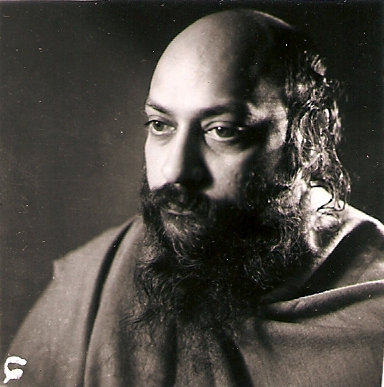Osho : Maneesha, it is one of the most important problems for any seeker, to understand a clear distinction between cultivation and enlightenment. You can cultivate enlightenment, but that will be only phony.
You may believe in it, but your belief cannot make it true. Even if the whole society supports it, it does not matter. Truth needs no support; it has to be self-evident. And how can you cultivate enlightenment if you don’t know it? You will simply imitate other enlightened ones.
But every enlightened person has a unique character of his own. Nobody can be another Isan. However hard he tries to cultivate, imitates every action of Isan, every word, still he cannot be Isan. He will remain himself, only with a cultured, cultivated layer around his mind. It will remain a mind act, and certainly enlightenment is not a mind act.
So nobody can cultivate enlightenment. But after enlightenment… Enlightenment happens suddenly. You can follow a device, with no guarantee that it will lead to enlightenment. But if you have a living master with you, watching step by step where you are moving, supporting you with one hand, as one of the Indian mystics, Gora, used to say… Gora was a potter, a very poor man, but he came to the same height as Gautam Buddha.
His language, of course, was that of a potter. But sometimes the raw language of the villagers can express things which very sophisticated language cannot. Gora says that the master has to use both his hands, just like a potter. The potter hits the mud that he is turning into a pot from the outside with one hand, and from the inside with the other hand. His hits, his support, slowly create the pot.
The master has to use every possible way to bring you to the point where enlightenment is possible. Just a little push – either of circumstances or by the master, or by the disciple himself – just a little turn. One step, and the old world is gone and you have entered into a new sky.
This is very sudden, because you were not preparing for it – although for the master it is not sudden. He was preparing for it from every possible corner. Hitting you, shouting at you, being respectful to you – in every possible way the master was bringing you to the brink from where you need to take one step more. That step only you can take; the master can bring you up to the brink.
It needs an articulate master. No ordinary master can do that; hence there are many mystics, but very few masters. To be a mystic is difficult in itself, but to bring the message to somebody else or to transform somebody else’s consciousness towards mystic experiences, one needs many qualities – an articulate way of giving an incentive to your longing, a reasonable approach, even making the irrational at least look rational, to turn even the absurd into a beautiful explanation.
And to manage devices, meditations, from different corners of your being – one never knows from which side, north or west, east or south, you are most vulnerable. But the master slowly, easily, becomes aware from which side you are most vulnerable. Then that side has to be hit as hard as possible, because the weakest link in your chains is going to give way first.
Your liberation, your enlightenment, is a tremendous artwork of the master. To find the weakest link in your chains, and to hit you in such a way that rather than being angry you feel grateful – it is almost a miraculous alchemy. But as far as you are concerned, enlightenment happens suddenly.
The master was preparing, step by step; but that was in his consciousness, it was not part of your consciousness. To you, the door suddenly opens. The master never declares that you have reached the door. He waits for the right moment: when you will be absolutely silent, utterly empty, the season comes on its own. And as you are maturing and ripening, the door is getting ready to open for you. But it is always a surprise to you, not to the master who has been preparing for years in different ways, bringing you to the point where you can disappear and evaporate.
After sudden enlightenment, a certain cultivation is needed because the sudden can become a glimpse. Your sleepiness is so deep, your unconsciousness is so vast that a sudden glimpse, a lightning… and again dark clouds have taken over. That beautiful moment will be remembered by you; you will start even doubting it: ”Did it happen or did I imagine it? Was it a reality or a dream?”
But the sweetness of it will remain with you. The fragrance of it will remain with you. Cultivation after enlightenment simply means to avoid any situation that can destroy your glimpse. You have to pour your whole energy into the glimpse to make it more and more authentic, more and more deeply rooted in you, so that it becomes an indubitable truth. No clouds can destroy it and no sleepiness, no inertia is able to take it away from you. Isan’s statement has to be understood in this light.
